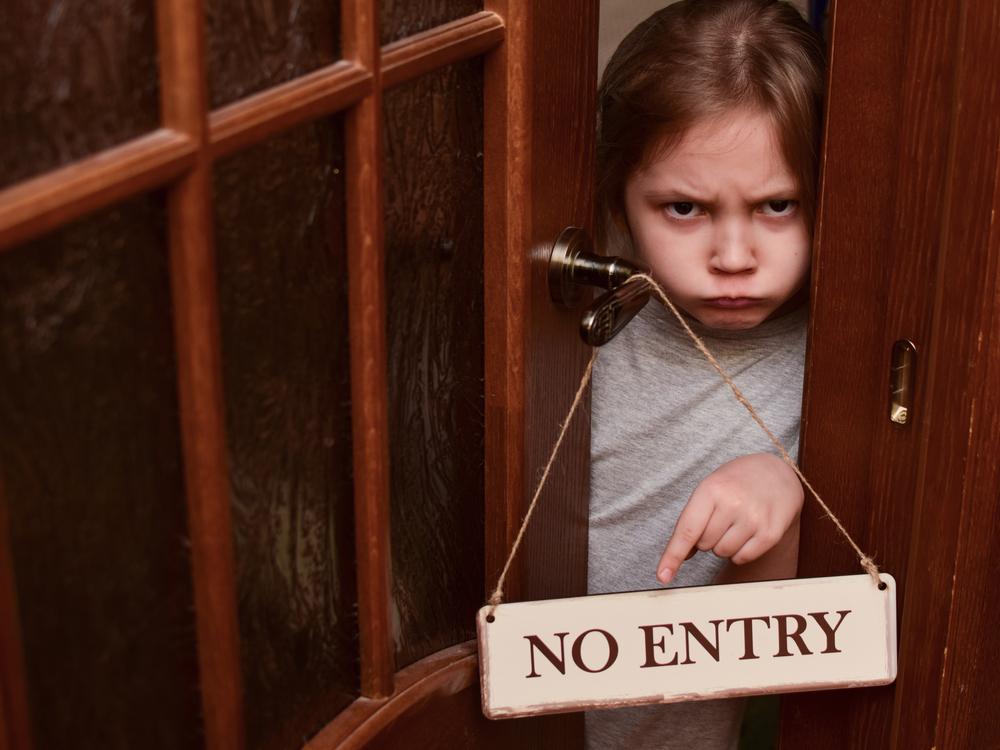Having adult children who genuinely want to spend time with you isn’t just luck—it’s the result of years of intentional parenting choices that built trust, respect, and genuine connection. While there’s no perfect formula for raising kids who become your friends, certain patterns tend to create a smooth transition from parent-child hierarchy to adult friendship. Here’s what you probably did right along the way.
1. You Respected Their Privacy Even When It Killed You

Back when their bedroom door first started closing, you fought every instinct to barge in and demand information. Instead, you knocked and waited for permission to enter, even when the suspense was killing you. You didn’t read their diaries, scroll through their phones, or interrogate their friends for intel. That respect for boundaries taught them they could trust you with information rather than hide it from you. Now, they choose to share their lives with you because they know you won’t violate their trust.
2. You Let Them See You’re Human Too

Instead of maintaining a perfect parent facade, you showed them your real struggles, appropriate failures, and genuine emotions. When you made mistakes, you owned them and apologized sincerely. You shared stories about your own growing pains and poor decisions, not as cautionary tales but as proof that imperfection is part of being human. Your vulnerability gave them permission to be imperfect too, creating a relationship where they don’t feel the need to hide their struggles or pretend to have it all figured out.
3. You Didn’t Make Their Achievements Your Identity

Their successes and failures remained firmly their own, not material for your personal highlight reel. You celebrated their victories without taking credit and supported them through defeats without making it about your disappointment. They never felt like they were performing for your ego or living out your unfulfilled dreams. Because you maintained your own identity and interests, they didn’t feel responsible for your happiness. Now they share their accomplishments with you because they want to, not because they feel obligated to feed your sense of self-worth.
4. You Listened Without Always Trying to Fix

When they came to you with problems, you mastered the art of shutting up and really hearing them. Instead of jumping straight into solution mode, you let them process their feelings and develop their own problem-solving skills. You asked questions like “What are you thinking of doing about that?” instead of immediately offering advice. Your restraint taught them that they could think through challenges out loud without being bombarded with unsolicited solutions. Now they still come to you with their struggles because they know you’re a safe space for processing, not a fix-it factory.
5. You Gave Them Room to Make Their Own Choices (And Mistakes)

Even when you could see the train wreck coming, you let them make their own decisions and learn from the consequences. You bit your tongue through questionable haircuts, toxic friendships, and risky career moves. Instead of saying “I told you so” when things went wrong, you were there with support and zero judgment. They learned that your love wasn’t conditional on their choices and that making mistakes wouldn’t cost them your respect.
6. You Created a Judgment-Free Zone

Your home became the safe space where they could discuss anything without fear of harsh judgment or lectures. Whether they were questioning their sexuality, changing their religion, or completely switching career paths, you maintained an atmosphere of acceptance. You didn’t pepper them with criticism disguised as concern or subtle digs about their life choices. This emotional safety net meant they never had to create a sanitized version of themselves to maintain your approval.
7. You Never Weaponized Their Vulnerability

When they shared sensitive information, you kept it sacred. Their confessions didn’t become ammunition in future arguments or gossip material for family gatherings. You never threw their past mistakes in their face during conflicts or used their insecurities to win points. They learned that opening up to you was truly safe, not just gathering material for future emotional blackmail.
8. You Evolved With Them

As they grew, you adapted your parenting style instead of trying to freeze them in childhood roles. You welcomed their maturing perspectives and respected their growing independence. When they started forming their own political views or questioning family traditions, you engaged in real dialogue instead of pulling rank. You allowed your relationship to transform naturally from parent-child hierarchy to adult friendship. They know you see them as the adults they’ve become, not just the kids they used to be.
9. You Maintained Healthy Boundaries

You never made them your therapist, your best friend, or your source of emotional fulfillment when they were kids. You had your own support system and didn’t burden them with adult problems or rely on them for your happiness. They didn’t have to parent you or manage your emotions, allowing them to actually be children. Now that they’re adults, you can build a genuine friendship because there’s no resentment from forced emotional labor or role reversal in their youth.
10. You Treated Their Partners With Respect

When they started bringing significant others home, you welcomed these newcomers without interrogation or immediate judgment. You didn’t play competitive games for their affection or try to drive wedges in their relationships. Even when you had concerns, you expressed them respectfully and then stepped back. When relationships ended, you didn’t gloat or say “I knew it all along.” They know they can bring new people into their lives without dreading your reaction or having to manage tension.
11. You Let Sibling Relationships Evolve Naturally

You never forced artificial closeness between siblings or played favorites. You understood that each child needed their own relationship with you, independent of their siblings. You didn’t compare them to each other or create competition for your attention. When conflicts arose, you let them work things out (within reason) instead of always playing referee. Now they can maintain authentic relationships with both you and their siblings without feeling trapped in childhood dynamics.
12. You Didn’t Use Money as Control

Financial support didn’t come with strings attached or emotional manipulation. Whether helping with college, emergencies, or early adult life, you were clear about what you could offer without using it as leverage. You taught them financial responsibility without making money a weapon in your relationship. They learned they could accept help without sacrificing their autonomy, and that your love wasn’t tied to your wallet.
13. You Separated Your Expectations From Their Reality

Instead of projecting your dreams onto their future, you helped them discover their own path. You didn’t pressure them to follow family traditions, take over the business, or live close to home. When their life choices differed from your expectations—whether about career, lifestyle, or personal values—you adapted rather than guilt-tripped. They know that your relationship isn’t conditional on them fulfilling your vision of their life, allowing them to be authentically themselves around you.
14. You Respected Their Time and Space

As they built their own lives, you understood that their time was valuable and didn’t demand constant attention. You didn’t guilt them about missed calls or make every holiday a mandatory appearance. You learned to send texts that didn’t require immediate responses and to plan visits with reasonable notice. They don’t feel suffocated by obligations or dread your name on their caller ID because you’ve shown them that love doesn’t mean constant availability.
15. You Built Individual Relationships With Each Child

You recognized that each of your children needed different things from you and adjusted accordingly. One might need daily texts while another prefers weekly calls. You created special traditions and inside jokes unique to each relationship rather than taking a one-size-fits-all approach to parenting. Each child feels specially seen and understood by you, not just part of a generic parent-child relationship template.








